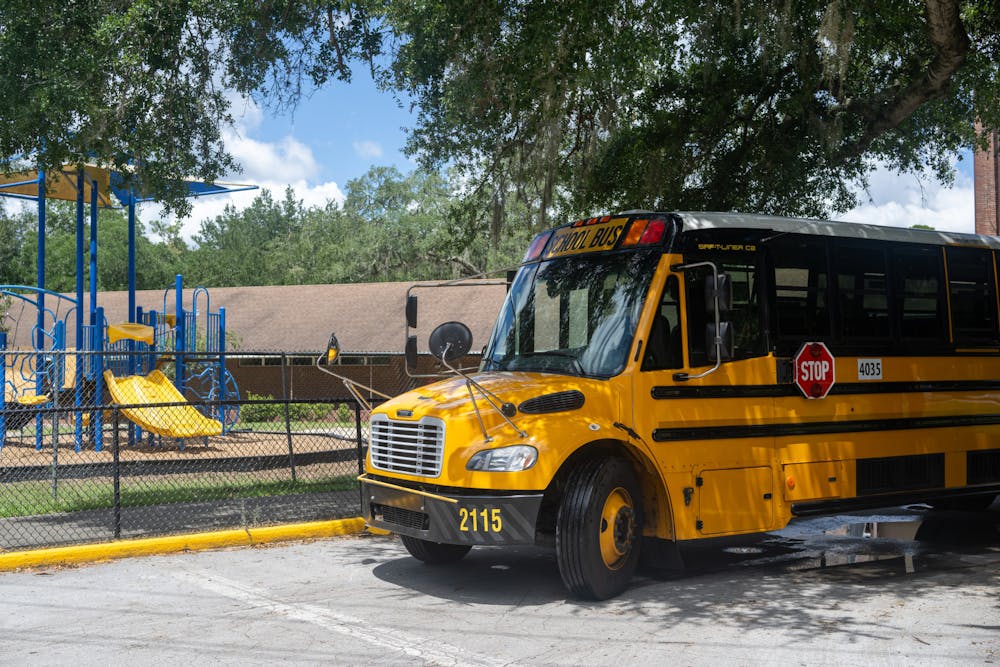The Alachua County School Board unanimously eliminated citizen input phone calls at a meeting Tuesday night.
The option to call into board meetings originated during COVID-19, and each phone call costs “well over $100,” Board Chair Sarah Rockwell said.
“Our phone system is underutilized,” she said. “It’s costing a lot of money, and we also have had a lot of technical issues with the phone system.”
Nathan Foote, ACPS director of information and technology, said the board spent $7,000 annually on phone calls, and based on the number of comments per meeting, anywhere between $400 to $500 a night.
Foote didn’t specify how the charges are determined for the services.
Before the vote, the ACSB was the only county governmental agency to still allow community members to contribute to public comment via phone call, District 1 Board Member Tina Certain said.
Alachua County was also the only school district to keep the phone call-ins, Superintendent Kamala Patton said.
District 2 Board Member Thomas Vu said he was worried about a lack of identification for public commenters who call in, citing how some refuse to share their names.
During the vote, two citizens called in to share their dissent.
The first caller, whose name was unclear through the speakers, said she was “outraged” the call-ins were up for discussion. With four kids, the caller said she can’t be involved in-person like she wants to be.
“This is an absolute necessity with some of us, who are parents to our kids,” the caller said.
The second caller, who never stated their name, said they were “not surprised” the board wanted to get rid of call-in public comments.
“You want to silence those who cannot come down and make the meeting,” they said. “That’s not a good look for Alachua County.”
District 4 Board Member Leanetta McNealy suggested another option to submit public comment, such as an email inbox, but worried how the board would share public opinions if they were received instead through mass emails.
Board Attorney David Delaney said by Florida law, public comment is intended to be a “one way method of communication” and isn’t designed to “generate a dialogue.”
Within ACSB’s existing procedures, Delaney said if a concerning public comment to all board members was received via email, any member could bring it as an agenda item and read it aloud into the record.
Since it would be difficult to determine which emails are designed for public comment, Board Chair Sarah Rockwell said citizens should send their emails to the “all board member” inbox.
The alternative email option ultimately wasn’t brought to a vote after Superintendent Kamala Patton said she felt she couldn’t create a system for determining emails. Instead, she said any public concerns would be followed up with, whether by email or phone.
Gina Rivera, a Talbot Elementary School teacher, said she agreed with getting rid of phone calls during public comment.
“These meetings are scheduled ahead of time,” she said. “If you really want to prioritize getting your voice heard, you’re going to do everything in your power to try to be here.”
Citizen input phone calls will be available until July 1. The next ACSB meeting will be Feb. 18.
Contact Sara-James Ranta at sranta@alligator.org. Follow her on X @sarajamesranta.
Sara-James Ranta is a third-year journalism major, minoring in sociology of social justice and policy. Previously, she served as a general assignment reporter for The Alligator's university desk.






